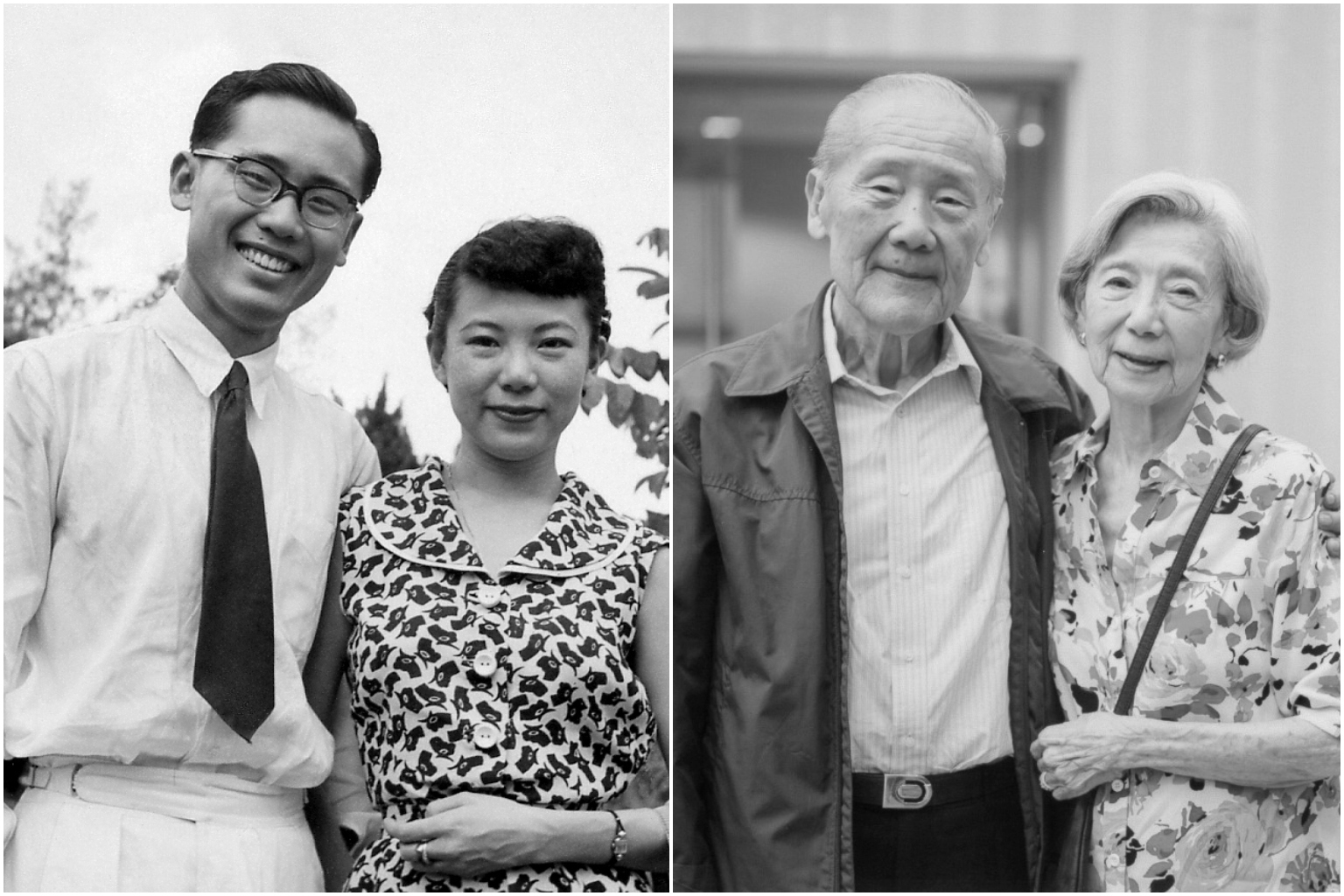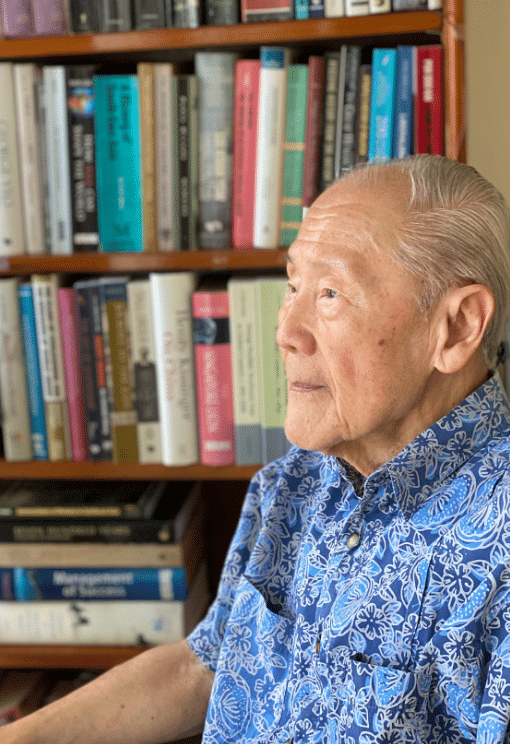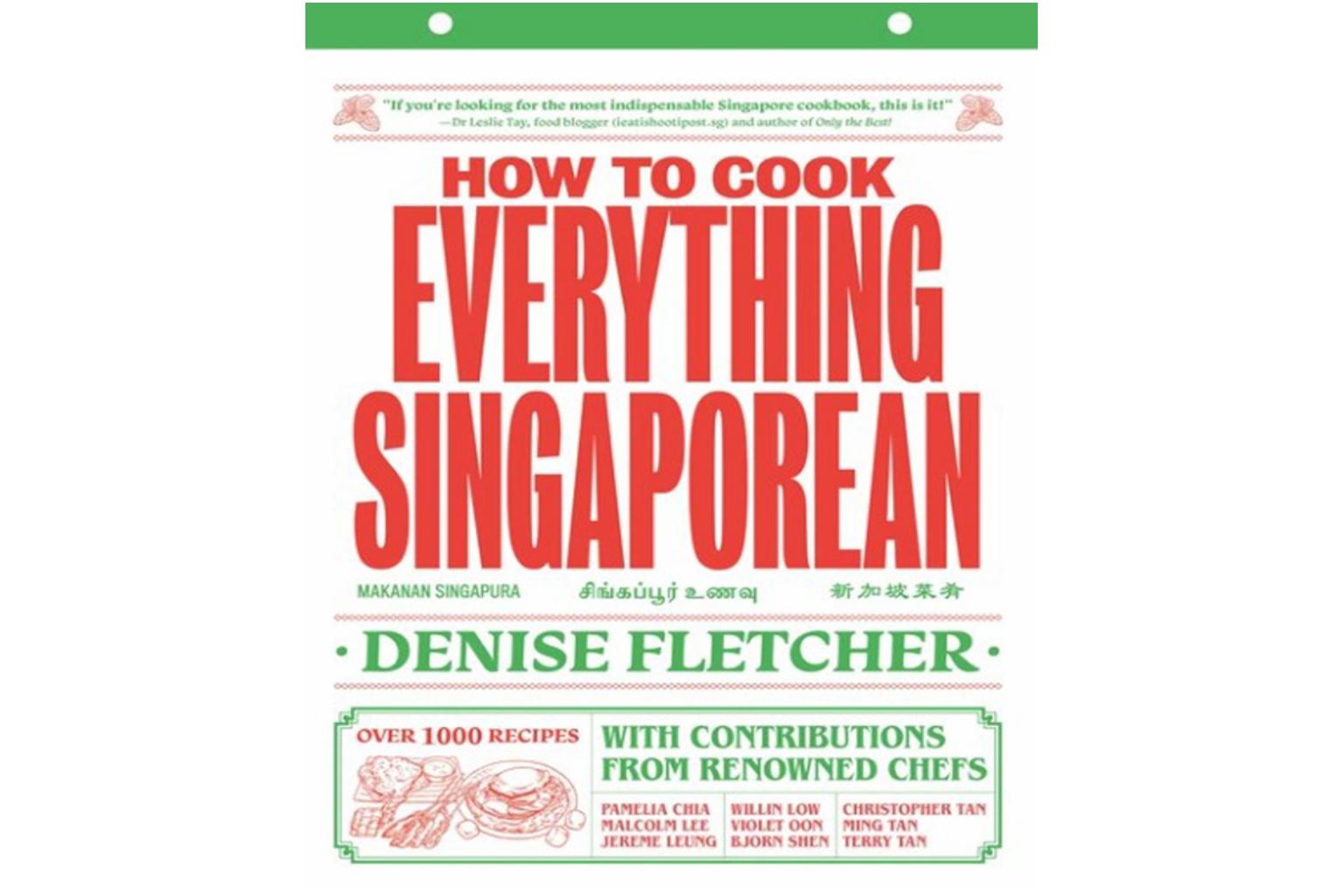5 local reads for November: Historian Wang Gungwu and his late wife found home was where they were
Sign up now: Get ST's newsletters delivered to your inbox

Prof Wang Gungwu and his wife Margaret in 1952 (left) and at their 60th wedding anniversary.
PHOTOS: COURTESY OF WANG GUNGWU
Follow topic:
SINGAPORE - In this monthly feature, The Straits Times lines up five hot-off-the-press home-grown books for readers to dive into.
NON-FICTION
HOME IS WHERE WE ARE
By Wang Gungwu with Margaret Wang
NUS Press/ Hardcover/ 287 pages/ $25.68/ Available at Kinokuniya.
On the eve of historian Wang Gungwu's move from Kuala Lumpur to Canberra, Australia in 1969 - one of a long series of uprootings throughout his life - his wife Margaret looked around at the house they were leaving, contemplated what they were bringing and said to him: "Home is where we are."
Years later, this would become the title of the memoir they wrote together, though Mrs Wang would not live to see it in print.
Prof Wang, a National University of Singapore (NUS) professor much garlanded for his work on Chinese history, published the first volume of his memoir, Home Is Not Here, in 2018.
The key shift between the two parts, says the 90-year-old in an e-mail interview, lies in the word "we".
"'We' became central to the story because, as we became a family and made a home in Malaya, we also discovered that it was possible to understand that home did not have to be a country, a city or a house, but could be found wherever we were."
Home Is Not Here spans his youth, from his childhood - he was born in Surabaya, Indonesia and raised in Ipoh, Perak while ever conscious that his immigrant parents held China as their homeland - to his 18th year, when he was called back from his studies in Nanjing to Perak.
Home Is Where We Are chronicles the next 20 years, beginning with his time at the nascent University of Malaya, as the British prepared to depart Singapore and a young English-educated generation of locals grappled with how they might shape the nation to come.
Then a budding poet, he had his poems published in Pulse, a booklet put together in 1950, which would come to be regarded as the first book of poetry published in Singapore.
That Singapore's literature might one day hold its own on the world stage was a phenomenon few in the 1950s dared to imagine, he says.
"In those early days, we were at the beginning of a decolonisation process that was to end with Singapore becoming part of Malaya. No one was clear what that Malaya would be like except that it would be a country of many languages and cultures.

"With the country being anchored in the Malay States, the national language could not be English. The official and legal language of governance might remain English in some parts of the country and literature could still be written in English, but that literature would not be expected to shape the national identity.
"Had the 1965 separation from Malaysia not happened, it is hard to imagine the majority of people in Singapore using English as their first language."
It was at university that he met fellow student Margaret Lim, who first caught his eye at a talk he was giving about the poet William Wordsworth. She would subsequently marry and accompany him around the world as he pursued his academic career, from Britain to Malaysia to Australia.
His illustrious career would go on to include being Emeritus Professor at Australian National University, founding chairman of the Lee Kuan Yew School of Public Policy at NUS and former chairman of the ISEAS-Yusof Ishak Institute. In June this year, he was awarded the prestigious Tang Prize for Sinology.
Neither of the Wangs had intended to write their memoirs. About 15 years ago, Mrs Wang began to regret that she did not know enough about her parents' history because her mother had not told her about their lives.
She thus set out to write her own story for their three children, who asked Prof Wang to do the same.
"We had been living with a time-free conversation between us, but we never thought it would end in a book," he says. Home Is Where We Are combines his narrative with extracts from Mrs Wang's writings.
Mrs Wang died on Aug 7, aged 86, ahead of the book's launch last month.
Prof Wang believes that if she were here today, she would say: "Yes, we made it. Home has indeed always been where we were."
COOKING
HOW TO COOK EVERYTHING SINGAPOREAN

By Denise Fletcher
Epigram Books/ Hardcover/ 692 pages/ $80.14/ Available at Kinokuniya.
In a truly monumental endeavour, this tome collects more than 1,000 local recipes, from raita to rendang, epok-epok to Armenian Christmas cookies and more.
Some of Singapore's top chefs pitch in with their own treasured recipes, from Mod Sin restaurateur Willin Low's bitter gourd black bean braised pork ribs to Peranakan cuisine doyenne Violet Oon's bakwan udang, a prawn and bean sprout fritter that was a childhood teatime favourite.
Fletcher, the executive chef at Quentin's Bar & Restaurant in Sentosa, hopes that the book will be an indispensable companion in the kitchen - although given that its heft, it will probably need its own stand.
FICTION
THE ROSALES HOUSE

By Mignon Bravo Dutt
Penguin Random House South-east Asia/ Paperback/ 199 pages/ $26.64 / Available at Kinokuniya.
Advertising executive Claire Rosales, 28, has her life in Singapore disrupted when her grandmother Gloria Rosales dies back in the Philippines and her politically powerful clan sets about carving up the estate.
Her uncle Ric, a charismatic congressman, is running for re-election, but Claire discovers a shocking truth about him. New scandals befall the family as their social standing crumbles.
FICTION
THE FISHERMAN KING

By Kathrina Mohd Daud
Epigram Books/ Paperback/ 208 pages/ $26.64/ Available at Kinokuniya.
The last of this year's Epigram Books Fiction Prize finalists to be published, this debut novel tells the tale of Lisan, a Brunei fisherman who believes he is descended from royalty.
Eight years after he left his wife and home in the Water Village, he returns claiming he finally has proof of his origins. But his motives are complicated, as is his connection with a pair of star-crossed royal siblings from 600 years ago.
COMICS
SACRED GUARDIANS

By Aydeel Djoeharie, illustrated by Alan Bay
Asiapac Books and tokuAsia/ Paperback/ 105 pages/ $20.97/ Available at Kinokuniya.
This rollicking comic, a prequel to in-development live-action television project Sacred Guardian Singa, reimagines the myths and legends of ancient South-east Asia as superheroes drawn in the Japanese tokusatsu style.
Dev, an immortal being from the island of Tumasik, discovers that rakshasa demons from another dimension are laying waste to the region.
He embarks on a quest to assemble five heroes, who are reincarnated holy sages, to fight the rakshasas, a journey that takes him through various realms such as the Malay kingdom of Kantoli in Sumatra and the Sundanese kingdom of Tarumanagara on the island of Java.
This article contains affiliate links. If you buy through these links, we may earn a small commission.

